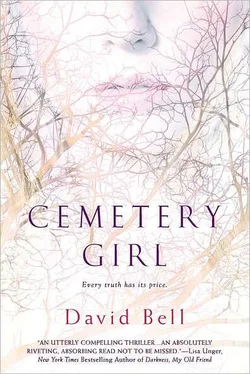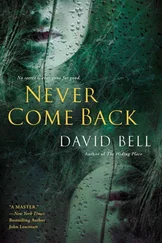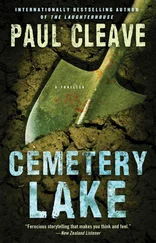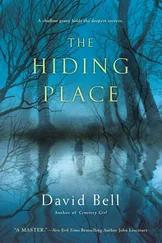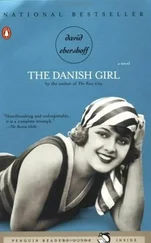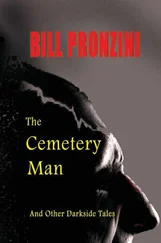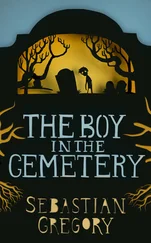David Bell - Cemetery Girl
Здесь есть возможность читать онлайн «David Bell - Cemetery Girl» весь текст электронной книги совершенно бесплатно (целиком полную версию без сокращений). В некоторых случаях можно слушать аудио, скачать через торрент в формате fb2 и присутствует краткое содержание. Город: New York, Год выпуска: 2011, ISBN: 2011, Издательство: NAL Trade, Жанр: Триллер, на английском языке. Описание произведения, (предисловие) а так же отзывы посетителей доступны на портале библиотеки ЛибКат.
- Название:Cemetery Girl
- Автор:
- Издательство:NAL Trade
- Жанр:
- Год:2011
- Город:New York
- ISBN:978-0451234674
- Рейтинг книги:4 / 5. Голосов: 1
-
Избранное:Добавить в избранное
- Отзывы:
-
Ваша оценка:
- 80
- 1
- 2
- 3
- 4
- 5
Cemetery Girl: краткое содержание, описание и аннотация
Предлагаем к чтению аннотацию, описание, краткое содержание или предисловие (зависит от того, что написал сам автор книги «Cemetery Girl»). Если вы не нашли необходимую информацию о книге — напишите в комментариях, мы постараемся отыскать её.
http://www.youtube.com/watch?v=qPxdiXa_QvE
Cemetery Girl — читать онлайн бесплатно полную книгу (весь текст) целиком
Ниже представлен текст книги, разбитый по страницам. Система сохранения места последней прочитанной страницы, позволяет с удобством читать онлайн бесплатно книгу «Cemetery Girl», без необходимости каждый раз заново искать на чём Вы остановились. Поставьте закладку, и сможете в любой момент перейти на страницу, на которой закончили чтение.
Интервал:
Закладка:
David Bell
CEMETERY GIRL

Prologue
Let me tell you something about my daughter. My daughter disappeared, and there were times I wondered if she was somehow responsible. Caitlin wasn’t like most kids-she wasn’t immature or childish. She wasn’t ignorant. In fact, she possessed a preternatural understanding of how the world worked, how humans worked. And she used that knowledge to deceive me more than once, which is why sometimes-I am ashamed to admit-I questioned her role in what happened.
Caitlin disappeared four years ago-when she was twelve. But the first time I became aware of her ability to deceive she was only six, and the two of us were spending a Saturday together. There were many days like that one with Caitlin, and I always remember them as some of the happiest. Quiet. Simple. As easy and effortless as floating in a pool of water.
On that particular day, Caitlin was playing with a group of kids from the neighborhood. Back then, a number of families with small children lived on our street, and the kids were all about the same age. They ran around together in the yards, playing on swing sets and jumping in leaves. No matter where the kids went, a set of adult eyes watched them. We liked the neighborhood for that reason.
Unfortunately, shortly after we moved in, and not long after Caitlin was born, the city widened the boulevard that sat perpendicular to our street in the hope of accommodating more traffic. This brought more cars to our neighborhood. Every parent on the block felt the same degree of concern, and some talked about moving away. But we wanted to stay, so we made a rule for Caitlin: do not ever cross the street without one of us watching. Not ever.
Anyway, on that Saturday-although it was only later that it would become that Saturda y-with my wife, Abby, out of the house for the evening, I cooked hamburgers in a skillet, managing, as always, to splatter the stove top with a liberal amount of grease. I also baked frozen premade french fries in the oven; it was exactly the kind of meal a dad makes when he’s left in charge of his daughter.
At dinnertime, I stepped into our front yard, expecting to see Caitlin nearby with the other kids, or at the very least I expected to hear their voices. But I didn’t. I stood in the late-afternoon shade of the big maple in front of our house, and I looked one way, then the other, hoping to catch sight of Caitlin and her little posse. I was just about to call her name when I finally saw her.
She was standing at the far end of the street, where they had widened the thoroughfare a few years earlier. I knew it was Caitlin, even from that distance, because she had left the house that afternoon wearing a bright pink top, and that electric burst of color stood out against the muted browns and oranges of the fall. I started toward her, lifting my hand and getting ready to wave, when Caitlin made a quick move toward the street.
I’ll never know if she saw the car.
It turned onto our street, moving faster than it should have, and its grille filled my vision, looming behind Caitlin like a ravenous silver mouth.
My heart jumped.
I froze, and for a long moment, time ceased.
Then the driver slammed on his brakes and stopped a couple of feet from my child.
Inches from crushing her.
But Caitlin didn’t hesitate. She took one quick glance at the car, but despite its proximity to her body, she kept on walking across the street, into a yard, and around the back of the house, acting as though nothing out of the ordinary had happened. I remained rooted to my spot, as dumb and still as stone, my mouth frozen in the process of forming the shout that never came.
After a brief pause, the car moved forward again. It came down the street slowly, right past me. A couple about my age occupied the front seats; the man was driving. His wife or girlfriend waved her arms frantically, her face angry, no doubt chastising him for his carelessness. And the man held his right hand in a placating gesture as though asking for calm, for time to explain. They didn’t even notice me.
What should I have done? Flagged them down and chewed them out? Pulled the man out of the car and pummeled him with my fists? The truth was that Caitlin had darted in front of them, and if she had been hit or run over, I couldn’t have blamed them for the accident. My daughter was careless, extremely careless and-more importantly-disobedient. And, yes, I had been careless, too. I had let her go too easily, too thoughtlessly. I deserved my share of the blame as a parent.
I went back inside the house, where the smell of fried hamburger hung thick in the air, and waited for Caitlin to enter the front door.
You might think I grew more and more angry as I waited, that I paced and stewed and contemplated the appropriate punishment for a child who blatantly disobeyed me and almost ended up dead as a result. But I didn’t. Abby and I agreed we would never raise our voices to Caitlin, and we would certainly never lay hands on her in anger.
About thirty minutes later, Caitlin came bustling through the front door. She strolled into the kitchen and bounded up onto a chair.
I set the table with paper plates and napkins. Caitlin sniffled and carefully wiped her nose with a tissue. She looked at me, her face cheery and full of expectation.
“Can we eat?” she asked.
“Not yet,” I said. “Caitlin, honey, I want to ask you something.”
“What?”
I took a deep breath. “Did you cross the street while you were out? Did you cross the street without permission?”
She didn’t flush or blink or swallow. “No, Dad.”
“Are you sure, honey? Are you sure I didn’t see you crossing the street?”
Her voice remained calm. “I’m sure, Dad. I didn’t.”
I held a paper napkin and twined it between my fingers. I released it, letting it drop to the table. Caitlin, for her part, didn’t seem to notice. She stared back at me, eyes wide and innocent. They were completely free of guile.
I said, “Are you telling me you didn’t cross the street and almost get hit by a car? I saw you, honey. I was in the yard watching you.”
Her face flushed a little. A tint of red appeared in her cheeks, and while Caitlin wasn’t a crier, I thought she might break down after being caught in such a blatant lie. But she didn’t crack. She remained composed, a little six-year-old poker player.
“I didn’t, Dad,” she said. “No.”
I didn’t lose my temper or send her to her room or give her a patented fatherly lecture on the importance of telling the truth. I didn’t do anything except stand up from the table, go to the stove, and make her a plate of food. I brought back the food and put it in front of her. The two of us sat there, as the sunlight slanted through the kitchen window, eating our burgers and fries like an all-American father and daughter. We chewed our food and talked about her friends and what time we thought her mom would be home. We never again spoke about crossing the street or her near fatal run-in with the car.
And I never told Abby about it.
At some point, all parents realize their children have layers that may remain forever unexplored. Maybe I learned it sooner than most. For whatever reason, Caitlin’s uncharted depths formed a black hole at the center of my being, and when she disappeared six years later, I thought of that moment often.
PART I
Chapter One
Somehow, the dog knew he wasn’t coming back.
I picked up Frosty’s leash and jiggled it while walking to the door, but he didn’t follow. Ordinarily, that sound made him jump and run, his nails clacking against our hardwood floors, but this time he slinked away, head down, eyes averted. I called his name, but he ignored me. So I went to him.
Читать дальшеИнтервал:
Закладка:
Похожие книги на «Cemetery Girl»
Представляем Вашему вниманию похожие книги на «Cemetery Girl» списком для выбора. Мы отобрали схожую по названию и смыслу литературу в надежде предоставить читателям больше вариантов отыскать новые, интересные, ещё непрочитанные произведения.
Обсуждение, отзывы о книге «Cemetery Girl» и просто собственные мнения читателей. Оставьте ваши комментарии, напишите, что Вы думаете о произведении, его смысле или главных героях. Укажите что конкретно понравилось, а что нет, и почему Вы так считаете.
